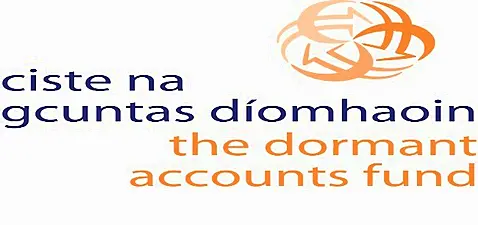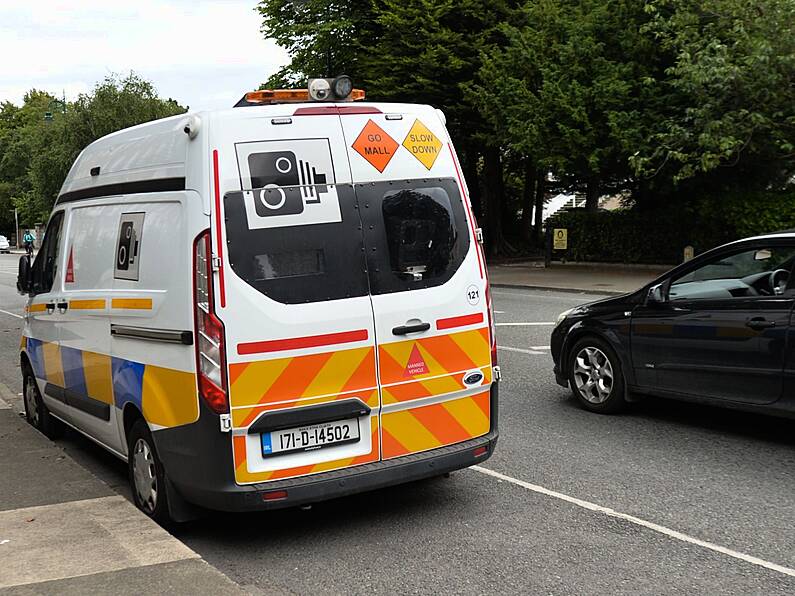What do you see?
What do you picture, when you hear the words ‘Domestic Violence? An angry man abusing his partner, late at night in their home?
An abusive woman threatening her partner, away from prying eyes? Or do you see the children - cowering in a corner, with hands over their ears, to shut out the sound?
Victims of domestic violence will often try everything in their power to shield their children from the abuse they themselves are suffering and until recently, discussions on domestic violence focused mainly on the adults involved.
However, research now shows, that children don’t just witness the domestic violence, they experience it.
Their awareness of the abuse is greater than their parents acknowledge or even realise.
“Research shows Children don’t just witness domestic violence, they experience it.”
Although children can often be in the room when physical, emotional or sexual abuse happens to their mother or father, they do not have to be physically present to be deeply traumatised by it.
For some children, hearing the violence was more distressing than actually seeing it.
Even when children are spared from seeing or hearing it, they see the aftermath – the blood, bruises, tears and broken items.
In general, children are:
- Aware of the fear and tension in the house.
- They can be afraid they will do something to set off the violence.
- They can feel guilt for not being able to stop it, or because they feel they are somehow responsible for the violence.
- Tragically, they can also come to think this behaviour is normal.
“For some children, hearing the violence was more distressing than actually seeing it.”
The Impact of Domestic Violence on Children
Children exposed to domestic violence can be affected in many ways.
Living in an abusive environment can hinder a child’s development and lead to a range of social, emotional, physical and behavioural problems.
Different children develop different coping mechanisms to deal with what’s happening to them.
Some express the effects of the abuse internally and suffer from anxiety, depression and low self-esteem, while other kids express it outwardly through aggression, tantrums and anti-social behaviour.
Research evidence indicates that all children living with domestic violence can benefit from a range of interventions.
Research has suggested that there are 5 key areas of how children can be impacted by domestic violence:
“Different children develop different coping mechanisms to deal with what’s happening to them”
Domestic violence and child abuse:
There is a clear link between the presence of domestic violence and child abuse. Violent partners are often violent parents and children can be attacked if they try to intervene.
Threats of violence against children can be used as a tactic to control the suffering parent. Children can also experience physical abuse by the victim, who may be suffering psychological trauma.
There is also evidence that children are at a higher risk of sexual abuse by the perpetrator.
Impact of domestic violence on parenting ability:
Domestic violence can have a significant impact on the quality of parenting and can diminish both parents ability to meet the needs of their children. Stress, fear and depression caused by abuse can lead to emotional distance.
Domestic violence can undermine the authority of the abused parent and can result in the child emulating the lack of respect or aggression shown by the perpetrator.
This can lead to a situation where the victim of the domestic violence, has to rely on their abuser to discipline their child.
“This can lead to the victim of the domestic violence, relying on their abuser to discipline their child”
The impact of living in an abusive environment on child development:
An analysis of domestic violence studies found significantly poorer outcomes for most of the children exposed to domestic violence - in comparison to children who had not.
Infants and toddlers had poor verbal skills. Older children faced issues in social development. Research is also emerging which links exposure to domestic violence to negatively impacting children’s brain development.
It argues that persistent, elevated stress hormones, alter levels of key brain chemicals and can lead to difficulties in learning, memory and self-regulation.
“Exposure to domestic violence can negatively impact children’s brain development”
The impact of domestic violence on the family system:
Many families who suffer from domestic violence, struggle with multiple other problems, including poverty, homelessness, social exclusion and exposure to other forms of violence.
These problems can be a result of domestic violence but can also occur alongside it, in a wider dysfunctional family system.
Post-Separation Violence:
In domestic violence situations, the ending of the relationship does not always result in the ending of violence, with parental access often acting as a flashpoint for more violence.
Women’s Aid reported that in 2016 they received 411 disclosures from mothers who were abused by their ex-partners during access visits.
However, the issue remains complex. Research that gave children a voice to express their experience of domestic violence showed that even children who had to flee their homes and were living as domestic violence victims refugees spoke of missing their fathers.
The question of whether or not it is in the child’s best interest to maintain contact with an abusive and violent parent has strong and persuasive arguments on both sides.
“Women’s Aid reported that in 2016 they received 411 disclosures from mothers who were abused by their ex-partners during access visits.”
Signs of Childhood exposure to Domestic Violence:
The following information is illustrative. Some or all of these signs may also be indicative of issues other than domestic violence.
Psychological and Emotional Signs.
Children may show signs of:
- Separation anxiety.
- Insecure behaviour.
- Low self-esteem.
- Frequent need for reassurance.
- Fear of authority figures.
- Distress - that may include: anger, anxiety, sadness, fear of failure.
- Difficulties distinguishing fact from fantasy.
- Passive and withdrawn behaviour.
Older children may also show signs of:
- Self-blame.
- Anxiety about repeating the cycle of violence.
- Self-harm and suicidal thoughts, particularly if sexually or physically abused.
- Low self-esteem and feeling of self-worth.
Social and Behavioural Signs:
- Taking on the role of carer (especially girls)
- Drawn to groups that indulge in anti-social behaviour.
- Early sexual activity.
- Running away from home.
- Truancy and disaffection with education.
- Social isolation.
- Bullying or being a victim of bullying.
- Poor attention and concentration.
- Attention seeking behaviour.
Physical Signs:
- Fatigue
- Hunger
- Frequent complaints about illness/being unfit to be in school.
- Unkempt appearance.
- Possible undiagnosed medical condition because of missed medical appointments.
- Signs of injury.
- Bed wetting.
- Stomach pains and headaches
Signs when in a learning or play environment:
- Delayed language and cognitive skills.
- Poor communication skills.
- Reluctance to try new things.
- An inconsistent and erratic approach to work.
- Difficulties with group work.
- Destroying work (homework not done)
- Under achievement.
- Work related anxiety.
How to help children exposed to Domestic Violence:
Many of us come into contact with children, whether in our professional or personal lives, and so we should educate ourselves to be able to identify possible signs of abuse.
When it comes to intervening, there is no one size fits all solution. We must be aware that most children want the abuse to stop, but do not necessarily want the abusing parent to leave.
Children do not, in many instances, wish to hear negative comments about the abusing parent, and doing so may make them reluctant to talk with a trusted adult.
In most cases, the best way a bystander can help a child they are concerned about, is to seek out the child’s parent who is suffering the abuse and ask the parent if they are ok.
“We must be aware that most children want the abuse to stop, but do not necessarily want the abusing parent to leave”
What help is available? Here's how to report a concern you have about a child:
In an emergency, where the person is at immediate risk, you should contact the Garda Síochána or emergency services on 999 or 112.
Anyone can report a concern about a child. If you have any concerns about a child you should report it to Tusla - The Child and Family Agency.
http://www.tusla.ie/services/child-protection-welfare/contact-a-social-worker
If the child is in danger outside of office hours you can contact the Gardaí.
For more information on how to report a concern, and to learn about the ‘Children First’ guidelines which act as a roadmap to help parents, professionals, organisations and the general public to identify and report child abuse and welfare concerns, go to:
http://www.tusla.ie/children-first/how-do-i-report-abuse
Information on helplines available to children:
- In an emergency - Dial 999 for An Garda Síochána
- Childline Freephone – 1800 666 666 or www.childline.ie
- Teenline Freephone – 1800 833 634 - 7pm-10pm daily or [email protected]
- Teentext by texting 'talk' to 50101 - 10am-4pm daily
- CARI - 1890 924 567 - 9am-5pm Mon to Friday
Information on services available to children:
Barnardos provides services to families experiencing domestic violence. It also publishes excellent material aimed at both children and parents on how to deal with domestic violence.
https://www.barnardos.ie/resources-advice/parents/domestic-abuse.html
Barnardos also has a comprehensive section of their website aimed directly at young people who are experiencing domestic abuse in their family:
https://www.barnardos.ie/resources-advice/young-people/teen-help/domestic-abuse.html
The ‘What would you do?’ campaign website has an area dedicated to providing information to people under the age of 18 experiencing domestic violence.
http://whatwouldyoudo.ie/#page-under1
Safety:
Remember, if you suspect someone is being abused - before you get involved, ask yourself if it’s safe and legal to intervene.
If the situation is already violent or looks like its escalating quickly, don’t directly intervene. Call the Gardaí on 999.
The only effective bystander intervention is a non-violent one.If you see or suspect domestic abuse, visit whatwouldyoudo.ie or call 999.

Beat 102-103 supporting Cosc
#WhatWouldYouDo


A message from Cosc and the Dormant Account Fund supported by Beat 102-103







